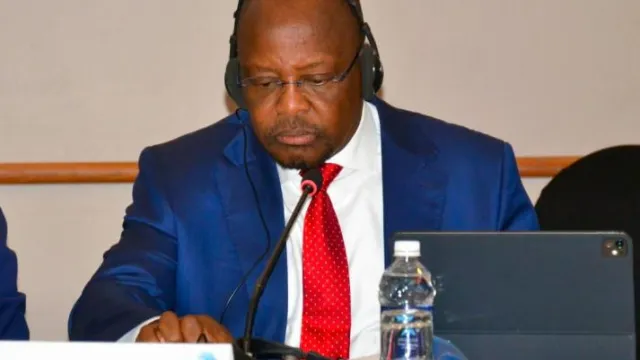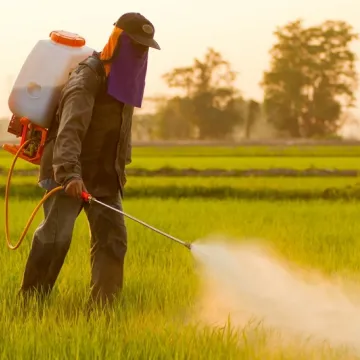Kagwe calls for regional ban on toxic pesticides at COMESA forum

Agriculture Cabinet Secretary Mutahi Kagwe. Kenya has made an urgent call for a regionwide crackdown on the use of hazardous pesticides within the COMESA bloc.
Kenya is calling for a cross-border crackdown on the use of hazardous pesticides within the Common Market for Eastern and Southern Africa (COMESA).
Speaking during the 9th Joint COMESA Ministerial Meeting on Agriculture, Natural Resources and Environment in Lusaka, Agriculture Cabinet Secretary Mutahi Kagwe explained that agrochemical products that have been banned in one country should be blacklisted across the entire to eliminate chances of harm to the population.
CS Kagwe argued that continued circulation of banned agrochemicals in some member states has negative impacts on food safety, public health, and the integrity of regional trade in agricultural products.
“The current situation where a pesticide banned in one country continues to be used next door completely undermines our collective Sanitary and Phytosanitary efforts. We are exposing our farmers, our consumers, and our markets to unnecessary and unacceptable risk,” expolained CS Kagwe.
He noted that the lack of uniform regulations was providing an opportunity for fraudulent traders to take advantage of enforcement gaps, leading to widespread contamination and undermining consumer confidence in regional agricultural systems.
The CS also argued that a common regulatory framework was essential to safeguard public health and agricultural markets. “We must not let fragmented policies stand in the way of our people’s safety. Harmonizing chemical standards is not optional, it is urgent,” he noted.
Furthermore, CS Kagwe reaffirmed Kenya’s readiness to support bold reforms aimed at turning the 21-member bloc into an engine for agricultural resilience and economic transformation and called on COMESA to embrace decisive policy actions.
Kenya’s proposals included joint development of livestock vaccines, cross-border protocols for certified seed trade, and adoption of digital tools to improve agricultural planning.
Unsafe agricultural products
The ministry of Agriculture has been on toes in its bid to ensure unsafe agricultural products have been taken off the market. In June, CS Kagwe banned 77 pesticides previously flagged for their toxic effects on human health, biodiversity, and food safety. Additionally, 151 products are under review by the authorities, with a decision on their approval expected by December, 2025.
The banned products include active ingredients such as Carbofuran, Chlorpyrifos, Atrazine, and Diazinon. These substances, already outlawed in Europe, have been associated with cancer, endocrine disruption, reproductive toxicity, and severe ecological harm.
Their ban follows years of advocacy by civil society groups such as the Route to Food Initiative whose report in 2019, revealed that one out of three pesticides used in Kenya at the time contained active ingredients banned in Europe, raising alarms about public exposure and food safety.
Others include the Pesticide Action Network, and Kenya Organic Agriculture Network both of which warned about the widespread presence of these substances in Kenyan markets, despite scientific evidence and international bans.
“Let this meeting be remembered not for what we discussed, but for what we dared to do,” CS Kagwe concluded.
COMESA bloc comprises 21 member states including Kenya, Burundi, Comoros, Democratic Republic of Congo, Djibouti, Egypt, Eritrea, Eswatini, Ethiopia, Libya, Madagascar, Malawi, Mauritius, Rwanda, Seychelles, Somalia, Sudan, Tunisia, Uganda, Zambia, and Zimbabwe.





